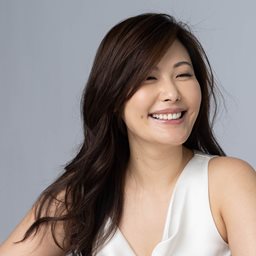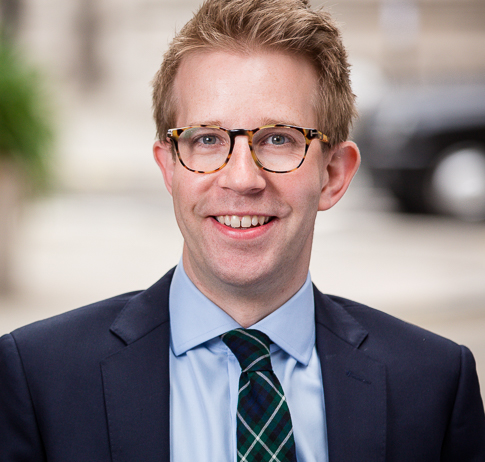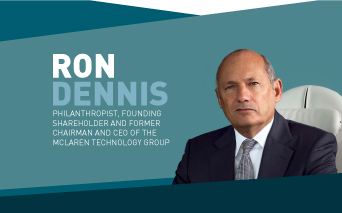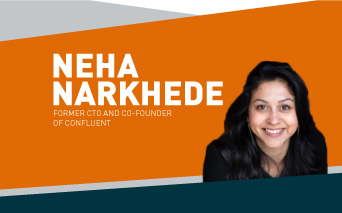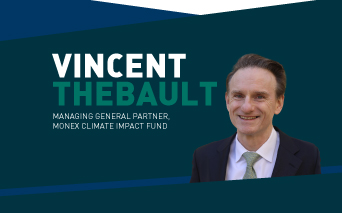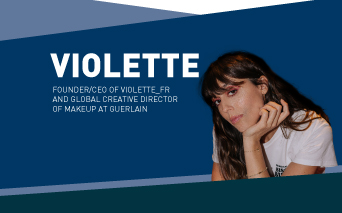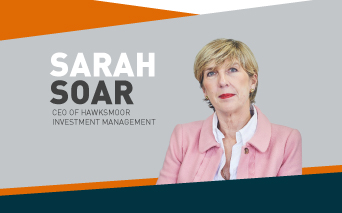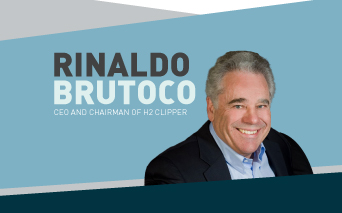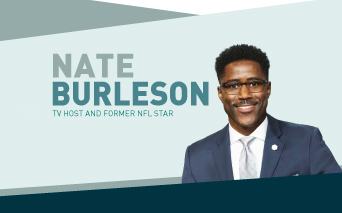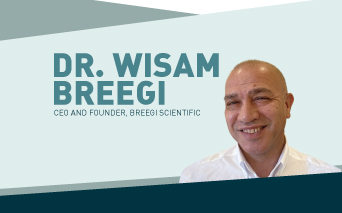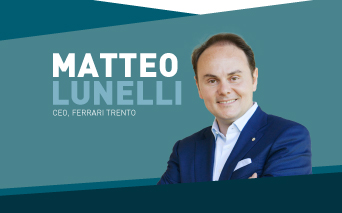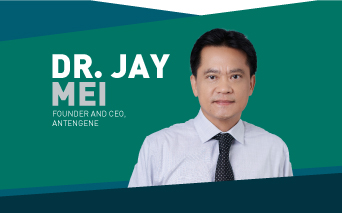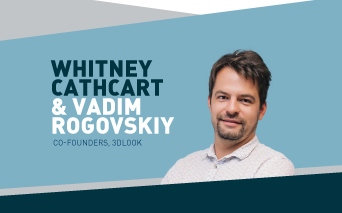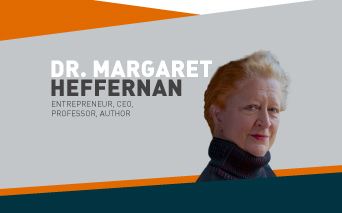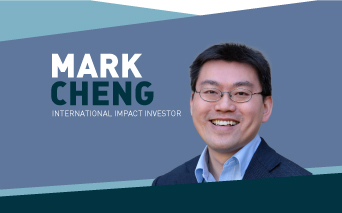Podcast
Natural beauty, challenging the skincare industry and the power of positivity
22 November 2021 | 24 minute listen
Episode 8 of Talking Success with Aasmah Mir
Aasmah talks to Michelle Chen, founder and CEO of RARE SkinFuel, about starting her career in Silicon Valley at 16, moving across the world to build an all-natural beauty brand and with this, challenging the skincare industry – and how her positive attitude has contributed to her success.
Podcast host: Aasmah Mir
Aasmah Mir is an award winning broadcaster and journalist. She currently co-hosts the Breakfast Show on Times Radio and writes a regular column for The Times.
Guest | Michelle Chen
Michelle is a ‘skincare believer’ and an anti-aging enthusiast and created her beauty brand to inspire women. RARE SkinFuel is a range of skincare products which utilise an array of all-natural ingredients, allowing them to be mixed and matched with no adverse effect. She was able to create a line of products ranging from face to body, which is suitable for all age groups, skin type or skin condition.
Michelle didn’t start her career in beauty, but instead began working as a graphic designer in a Silicon Valley start-up at the age of 16, where she then took on various roles as a buyer, product development director and sales. After working in various roles for over 15 years, Michelle decided to create a business of her own, and managed to turn her passion and energy into a brand that many people have connected with.
Note: We have provided a transcript of the discussion in this podcast if you are unable to listen to the audio version. This transcript is generated using a combination of speech recognition software and human transcribers and may contain errors.
Aasmah Mir (00:13) I’m Aasmah Mir, and this is a series where successful people reveal the defining moments of their careers and indeed their lives, because we all face moments of crisis, it’s how we respond that makes all the difference.
Michelle Chen (00:38) What you present to people is always the best of you. Every day I encounter difficulties. I encounter challenges. I have failures and I am not embarrassed to say I have failures.
Aasmah Mir (00:51) Today I’m speaking with Michelle Chen, the founder of Rare SkinFuel, a skincare brand that uses organic ingredients. Michelle, thank you so much for joining me, and how wonderful does your skin look today?
Michelle Chen (01:02) Hi Aasmah. Thank you for having me today.
Aasmah Mir (01:06) You’re very welcome. I’m going to begin with one of our big questions. What is the first big decision that you remember making?
Michelle Chen (01:13) There are obviously a lot of the big decisions that I had to make in my life, but I think the biggest one is definitely moving to Hong Kong 10 years ago because I left my family, come to a new city that I wasn’t familiar with, so not knowing what’s going to happen. The city changed my life literally, and I had my daughter here and also got a divorce here, started my business here. Everything new about me, really started in the city.
Aasmah Mir (01:43) And was that difficult decision to make?
Michelle Chen (01:45) Well, if I wanted to save my marriage, moving to Hong Kong, there was definitely the choice to make. That decision totally changed my life. I felt like my life in US and my life in Hong Kong, it’s two different lives and two different Michelle’s and without knowing what was going to happen, I can’t see myself being the way I am if I had stayed in San Francisco, honestly. I feel like moving to Hong Kong… had a baby here, started my business here… I wouldn’t know what my life would be if I had lived in San Francisco, but I think moving to Hong Kong definitely was a good choice. Otherwise, I wouldn’t be able to achieve what I have today already.
Aasmah Mir (02:30) I read somewhere that you started working as a teenager, pretty young, in San Francisco and others might have been focusing on their social lives. So how young were you, what were you doing, and why do you think you were already fixed on the business world at such a young age?
Michelle Chen (02:44) I think it’s a different culture in Asia and San Francisco. I think in US, kids started working early. Part of the reason is because they have to pay for their cars, right? Because living in suburb, if you want to drive a cool car, you’ll have to make car payments. So, my first job, I was pretty bold – I got a working permit from high school, so I was able to work, even though I wasn’t legally allowed to work until I was 16, the legal age is 16. But then because I knew if I just worked in a regular part-time job, I was not going to be able to make a difference and I would just be paying for my tuition and paying for the car payment. So, I ended up going to another school. So, I was quite lucky, but it was tough job. It was like I had to go to school like in the morning, like 6.50am, and then I will leave school 1pm or 2pm to go to another school so I was able to get my multimedia design degree. And I was very lucky. I have a degree of multimedia design because it was during ‘.com’. You know, the Silicon Valley, all the start-up back, when the internet was new. So there was a lot of start-up in Silicon Valley that needed to, you know, do a lot of hiring, recruiting, so then they could go IPO. So that was the trend back then. So I was very lucky that I got a graphic design job, age 16, 17, very lucky. I got my first stock option at age 17. I was very lucky. Yeah. So, then I guess that feeling of making real money made me want to go higher, you know, because I wasn’t making like few hundred dollars here and there, I was literally making annual salary with a stock options and driving a nice car, a new car, and then spending lots of credit cards, which I couldn’t pay at the end.
(04:33) So it was all life experience for me. But then, you know, seriously, I declined all my cards in the end, I had to go to a collection agency and consolidate, you know, all the card, payments into one payment. I lived like that before, but to me it was all experienced because had I stayed in Asia, because I wasn’t born in San Francisco, I was born in Taiwan. I only moved to US when I was 12. If I had stayed in Taiwan, and never moved to US, perhaps I would only be experiencing my first job in my twenties after college. But then because the fact that I moved to US and then I started working in the real job early, I felt that I lived my life 10 years earlier than the rest of the people at my age. I was only 28 years old when I moved to Hong Kong, ready to retire because I already worked about 10 years of my life from 16 to 28. That’s 10 years of a work.
Aasmah Mir (05:33) Can you explain to me… we’ve kind of missed a step… you had your graphic design work, and then you decided to build your own business and it was very successful, but what was the kind of process? Was that an overnight thing, you just thought, hang on a sec, I can do this thing, or this is my vision, or was it a gradual process?
Michelle Chen (05:51) It was a gradual process. I only did graphic design job for about five years, but keep in mind five years, I was only 21 years old, and I didn’t graduate college yet back then. So, by the time I graduated college, I knew if I stayed in this graphic design position for another five to 10 years, I would not be learning anything new besides learning the new programs. So I decided, look, I have to go back to school and do something that’s different than what I’m already doing, making real money. So I went back to school, I got my merchandising degree. So it’s a totally different field than what I studied in college. So I did a fashion merchandise marketing. So that’s where I learned my education in retail marketing.
(06:40) You know, how do you market a product, but then not working in a retail office wouldn’t give me the real full picture of how retail runs. So when I say retail, I’m not talking about working in a store, I’m actually talking about behind the scene, which is the headquarters. So, I remember they only hired two graduates in the buying office of a Mervyn’s department store. Back then the Mervyn’s department store – it’s a huge retail company, kind of like Macy’s. They have… they had, because it went bankrupt, it had 100 department stores throughout the nation. So I was working in the headquarters, my job was to decide which store to get what merchandise and how many pieces. So I was able to learn how you sell through the merchandise, I was able to learn how to price the products, I worked a lot with the buyers, with the financial planners, how you price the goods. So that’s where I actually learned all the retail experience behind the scene.
Aasmah Mir (07:37) And what was it about skincare? Why did you become interested in skincare?
Michelle Chen (07:41) I always loved skincare, even when I wasn’t working. I still remember, I was very young, 12 or 13 years old, I actually I don’t want to say I stole my grandma’s samples, cause those are samples, you know how like 20 years ago, you know, they would always give you those little small pieces and she would just put them in the cabinets. She didn’t know, but I was always conscious about my skin. So then I would actually grab them and use it on myself that she doesn’t know actually. So I don’t know if that’s considered, like were we sharing?
Aasmah Mir (08:18) Of course you were sharing, you’re a family. I’m interested, why were you conscious about your skin?
Michelle Chen (08:22) Because I never liked to wear cosmetics or makeup. I wouldn’t say I’m a lazy person in the morning, I just want to get out of the house, you know? Because seriously, I had a very busy schedule growing up because I was working a job in the full-time school and I was going to two schools, you know, in the morning I really only had 10 minutes in the morning to get ready, and there was a time when I was in high school… kids in US, you know what they do during recess? They go to the bathroom and then they touch up makeup. So that was kids at nine years old, 10 years old. So you feel like you have to fit in as well, so I started buying cosmetics too. I started putting on makeup, but if you compare the photos of myself with and without makeup, I actually feel myself looking younger without makeup.
(09:08) So that’s why… so when I started my business, I was thinking, you know, I am going to create a business because I’m going to create a brand, so what product am I going to sell? What products will make me feel like, oh, I am happy to do this job because it’s the products I will be using every single day. So I knew, building your own business you definitely have to find the product, make the product and even use the products so you know that you would be interested in using forever, for the rest of your life, so that’s why it was skincare.
Aasmah Mir (09:42) In terms of beauty and skincare, I find it fascinating, actually, I have to say, and my kind of approach to skincare over the years has obviously changed, I’m 49 now, it’s more of a necessity than before when I was just kind of dabbling. But I’m really interested in the industry side of things because natural, cruelty free, sustainable, they’re all buzzwords in beauty right now. There are so many brands now, there used to just be a few. Your brand, Rare SkinFuel, I think aims to try to change the industry. Now I wonder if that commitment, does it come with any kind of impact on your revenue stream or are we beyond that now? Are people now embracing this, whereas before it was very much, you know, people had kind of two choices.
Michelle Chen (10:28) I always thought if I wanted to delay my aging process, I would need to use pills that requires 20% of AHA or acid to stimulate the cell growth. That was my impression, until I went to Australia in August 2018, I started sourcing the manufacturer to making my products. I was totally scolded. I remember when I said no, why is everything in Australia are all natural? Couldn’t buy anything to even to try or to make them. I was thinking if I am going to make all my own products, I myself need to be the user, right? So, if I don’t trust and don’t believe natural, how can anybody else buy my product? Right? But then I was given a lesson about skincare manufacturing, and also why natural products are really better than a chemically made skincare products.
(11:41) Chemicals are actually processed ingredients. Chemicals are still made from natural ingredients, they’re just being hugely processed so that they can last longer. Our bodies do not build to antibodies against natural ingredients. Then I was thinking, yeah, it makes sense, because at some point I was buying products that was always top of the line. Every brand you can see in the market, I probably used them already. But then after I open the jar, after a few uses, I don’t see the results as initially when I first opened the jar. So that was, first of all, I was given a lesson on why natural ingredients is actually better than chemically made ingredients. Because [ ] was telling me the chemist, if you use beyond the recommended percentage, you can literally burn your skin, and that’s how powerful the active ingredients are, and the reason why I think I can change this skincare industry is because the way we manufacture our ingredients is also different.
Aasmah Mir (12:41) But is that more expensive, the way that you manufacture?
Michelle Chen (12:43) It is very expensive. I often got this question all the time. But they are questions which relates to my reason of making this product series is because they work, they work for my entire family. Sometimes I look at my products like they are soy sauce, they are mayonnaise, like they’re consumables. I know they’re very expensive, but in the long run, you’re actually saving a lot of money because people are constantly looking for new brands. They are buying products from reading magazines, ads, Instagram, social, you know, social media influencers. They buy products based on ads basically, but they’re not actually buying products based on the ingredients, which is why I think in the future, this will change, definitely. I started to see this already. People are actually reading the ingredients and they’re not buying brands. If you see the most expensive brands out in the market and you look at the back label, there’s nothing you can read. You can’t even pronounce those ingredients, how can you be sure that they’re safe to be used on your skin?
Aasmah Mir (14:01) What has it been like heading a business like this during a pandemic?
Michelle Chen (14:01) I saw the pandemic as an opportunity. It did affect me, it did affect a lot of people, but I still think this pandemic also helped new brands to have a better opportunity to thrive because the bigger brands, the established brands, or the traditional brands, because they were so well established, so their overhead is much bigger, it’s harder to sustain. But for new brands, for start-ups, they are very focused and they know what they’re doing and they’re like, go get it. So, for me as well, we only launched this brand in October 2019, but somehow everything kind of went according to our plan. You know, I just actually did a panelist speaking just recently and I remember there was one question that was being asked: what do you have to give your advice to people who wanted to start a business?
(14:55) I remember my most genuine answer was don’t have a business plan. Don’t have a business plan, no, trust your intuition. The minute that you wake up, you know what you want to do today, then schedule them and you just go for it because nothing will go according to your plan. I used to be a very scheduled person. Everything needs to be this way. I set schedules, and everything needs to be perfectly planned. But then your disappointment also will come from the things that don’t work out according to your plan. My advice basically is when you want to start a business, it’s good to have a structure, but don’t live in that structure. You just have to kind of… it’s very situational. Like you said, the world is changing, the viewpoints are different. Every day we’re being influenced, you know, be inspired every day. Every day you’re changing.
Aasmah Mir (15:52) Can you tell me why, and you must know at the age of almost 40, why are you successful? What is it about you?
Michelle Chen (16:00) Okay. What is it about me? I always have my smile on, trust me. I think it’s my attitudes towards the life. It’s my attitude. It has to be my attitudes. I mean, people don’t actually know the pain… people don’t actually know the difficulties in life because what you present to people is always the best of you, right? Every day I encounter difficulties, I encounter challenges, I have failures and I am not embarrassed to say I have failures, but then I wasn’t born to be this positive, when I struggle I do struggle and they hit me sometimes. But then I know that’s just really temporary, it’s really temporary. In life you will have struggles, but then the struggles will not be permanent. So if you could use that formula and apply it for the next challenge, then you know that this is just a cycle. This is a cycle. So I do, I allow myself to be mad, I allow myself to take a break, I allow myself to face these challenges and these failures, but I don’t dwell on these difficulties. And then when you pass these obstacles, then you just think, oh, those were actually just chapters of your book because it’s not the end yet. It’s definitely my attitude.
Aasmah Mir (17:22) Is there a decision that perhaps you have made that you did not enjoy making? I mean, obviously, you know, business is about weighing things up and then making a decision, but is there one that you really struggled to make? Was there anything that kind of sticks out in your mind?
Michelle Chen (17:37) A lot! I’m being really honest. I’m a person, I’m a human, a lot, every day. I mean, professionally the decision, sometimes I decide, turns out to be a disaster. Marriage, right? Like just one thing… businesses as well, but like I said, these are all your paths, right? And then I think the best part is that you can say what can you learn from these pattern, these journey, because it’s what you learn from these journeys that makes you stronger, then you also learn that formula, how to deal with your next challenge. I think that’s the reason why I’m this optimistic and I still smile every single day, considering the challenges I face every day. You know, the failures and the wrong decisions that I made for my life, it was very difficult, it was very painful. Sometimes what I would do… this is just my little personal trick… I would look at my calendar, I would count, on the bad days, I would say, wow, today is already end of August, it’s already mid-August, so one, two, three… there’s just three more months until my next pay day. So, I would literally, you know, I actually make the time shorter to allow myself to not be this, you know, scared about what’s going to happen.
Aasmah Mir (19:02) Just to end on, we have some lighter quickfire questions. So very short answers: Who inspires you in your work in your work?
Michelle Chen (19:10) My grandmother.
Aasmah Mir (19:11) What’s the most important skill that a business founder under needs to have?
Michelle Chen (19:18) This is a very tricky question. Think of a punching bag. You know, when you’re boxing, you punch it and then it bounces back, it bounces back. You have to have that resistance on the bottom of yourself, so when you get hit, you bounce right back.
Aasmah Mir (19:36) I love that, I love it! What’s your favorite time of the workday? Don’t say 4am.
Michelle Chen (19:42) No, no. I think it’s my night-time/my downtime. I think that’s when all my inspirations would come. Because during the day you associate with your team members and then when you get home, you’ll have a seven year old… ‘mommy, mommy…’
Aasmah Mir (20:00) Oh man, I have a six year old, I know exactly what you mean!
Michelle Chen (20:06) Mommy this, mommy every day, every second, even when you’re really trying to come up with an answer for the email response, but then, then there’s ‘mommy this’. I say it is 11 o’clock at night-time, when I turned on my music, and when there’s no sound, other than the soothing music, that’s the best time to work.
Aasmah Mir (20:26) What advice do you wish you’d listened to more carefully, perhaps, when you were younger?
Michelle Chen (20:30) Be more patient. I’m learning to be more patient now, so I don’t make more mistakes by making quick decision. This applies to everything, not just career.
Aasmah Mir (20:40) What is something that you’ve changed your mind about in life?
Michelle Chen (20:46) No, nothing.
Aasmah Mir (20:49) Really? Wow!
Michelle Chen (20:49) Really nothing, because… there was a question that recently… asked me who can influence you. My answer is probably the only answer… nobody me. Me!
Aasmah Mir (21:04) Is there anything that you want people to know about you that they don’t?
Michelle Chen (21:08) I can make a gorgeous meal. I cook very well.
Aasmah Mir (21:17) What’s your special dish?
Michelle Chen (21:21) You know, the Italian porchetta? I can really make the skin super crispy, and then the meat is super juicy. I can turn a dining table, like a fine dining restaurant.
Aasmah Mir (21:35) Good to hear, very useful skill. And is there one word that sums up your working style?
Michelle Chen (21:41) My work style. I think I’m a great listener. Nobody treats me like a boss. I think there’s definitely a difference between a leader and a boss. I consider myself a very good leader. I’m not a boss, because boss can intimidate staff, but I lead people. So that actually gives myself more work sometimes, when I listened to a conversation, being a boss, you can easily stop them and tell them things that they don’t want to hear, but because they’re your staff, so they may have to listen to you, right? But being a leader is not, I like to listen to what they have to say, and then myself is kind of like a computer and then I process it, and then I will give you my feedback in a nice way that they can process better. That’s me, my working style.
Aasmah Mir (22:29) Michelle, thank you so much. It’s been lovely to talk to you.
Michelle Chen (22:31) Thank you for having me. I had a great time.
Aasmah Mir (22:35) Well, I have to say, I really loved speaking to Michelle. That is someone who is really easy to talk to. Very, very amiable and nice. But my goodness, that woman has a core of steel. She is a very efficient, very successful business leader. She talks about, you know, how you have to be a punching bag, you have to be resilient, you have to be able to just keep coming back, and you have to remember that if you’re failing, if things are going bad, it’s always temporary, which you know that is a great lesson in life.
Thank you for listening to Talking Success. You can find out more about Withers on their website, withersworldwide.com. If you’ve enjoyed what you’ve heard, please follow us on your podcast app to get updates on the latest episodes or leave us a review.
Next week, I’ll be talking with Rinaldo Brutoco about how he never settled on one career, how he cofounded the first company to offer pay cable TV services, and about what he is doing to address climate change.
Talking success is a Feast Collective production. The producer is Leo Schick. The executive producer is Kate Taylor and I’m Aasmah Mir.
Goodbye.
